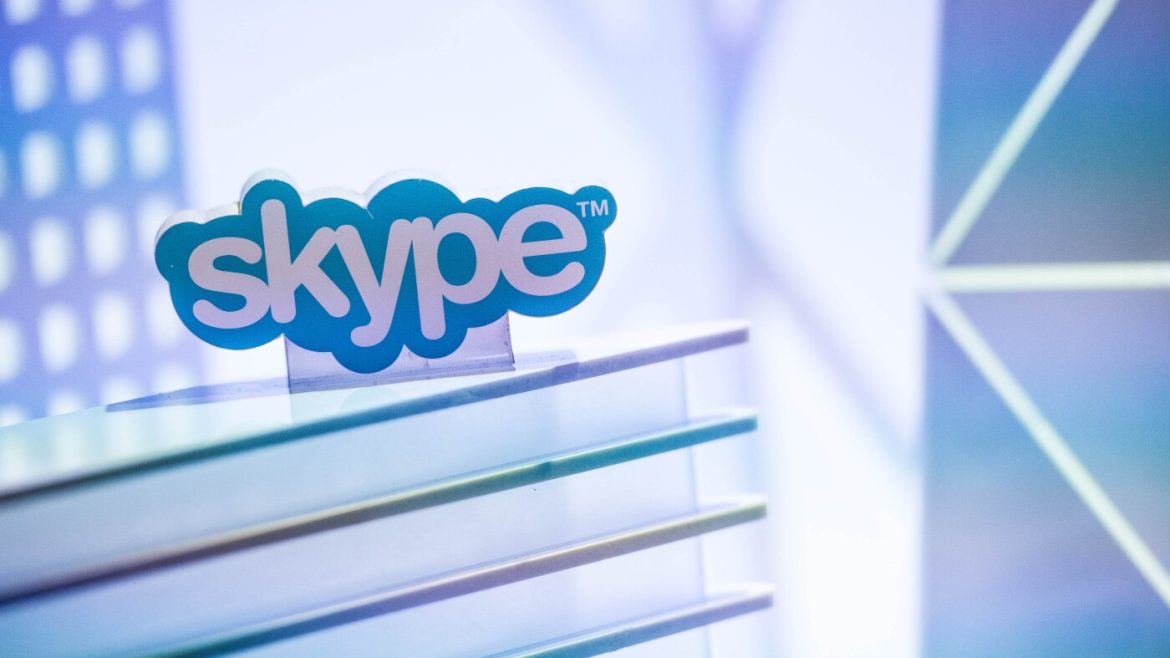The Rise and Fall of Skype
Skype, the pioneering online video calling service, has been a staple in the digital communication landscape for over two decades. Founded in Luxembourg in 2003, Skype revolutionized the way people communicated by offering free computer-to-computer calls, soon expanding to include video call capabilities. Its journey from a groundbreaking innovation to its eventual shutdown in May 2025 is a testament to the rapid evolution of technology and the ever-changing needs of users.
A Pioneering Era
Skype’s initial success can be attributed to its innovative approach to communication. It was the first platform to offer free computer-to-computer calls, making it accessible to a wide range of users. This feature, combined with its user-friendly interface, quickly made Skype a household name. In 2005, eBay recognized its potential and purchased Skype for $2.6 billion, further cementing its place in the tech industry. However, eBay’s ownership was short-lived, as they sold their controlling interest to a group of investors in 2009. These investors, in turn, sold the video calling service to Microsoft in 2011 for $8.5 billion, marking a significant milestone in Skype’s history.
The Golden Age
Under Microsoft’s ownership, Skype continued to grow and evolve. It became a go-to platform for both personal and professional communication, with features like instant messaging, file transfer, and debit-based calls to landline and mobile telephones. Skype’s versatility allowed it to be available on various desktop, mobile, and video game console platforms, making it a ubiquitous presence in the digital world. During this period, Skype was not just a tool but a cultural phenomenon, often used as a verb to describe video calling.
The Decline
Despite its initial success, Skype’s user base began to dwindle in recent years. The rise of competitors like Zoom, WhatsApp, and Slack offered users more specialized and often more user-friendly alternatives. These platforms capitalized on the growing demand for seamless video conferencing and messaging, especially in the wake of the COVID-19 pandemic. Zoom, in particular, became the video-chat app of choice, leaving Skype to struggle for relevance.
The Final Call
In 2023, Microsoft announced that Skype would officially retire on May 5, 2025. This decision marked the end of an era for the once-dominant video-calling platform. Microsoft encouraged users to transition to Microsoft Teams Free, which would replace Skype as the primary communication tool. This move was part of Microsoft’s strategy to consolidate its communication and collaboration tools under one umbrella, focusing on a more integrated and modern approach to digital communication.
The Impact on Users
For many users, Skype was more than just a communication tool; it was a lifeline. Stories abound of people whose lives were impacted by Skype, especially during times of crisis. For instance, during a week-long internet shutdown in 2019, Skype allowed people to stay connected with their families, providing a sense of security and comfort. As Skype shuts down, users are left to find new ways to stay connected, turning to alternatives like Microsoft Teams, Zoom, and WhatsApp.
The Legacy
Skype’s legacy is undeniable. It paved the way for modern video calling and messaging services, setting a standard that others would follow. Its impact on the tech industry is immeasurable, and its influence can still be seen in the way we communicate today. As we bid farewell to Skype, we also celebrate its contributions to the digital world, acknowledging its role in shaping the future of communication.
Conclusion
A New Dawn
The shutdown of Skype marks the end of an era but also the beginning of a new one. As users transition to newer platforms, the lessons learned from Skype’s journey will continue to guide the development of future communication tools. The digital landscape is ever-evolving, and while Skype may no longer be a part of it, its legacy will live on. The way we communicate has changed, and it will continue to change, driven by innovation and the need for better, more efficient tools. As we move forward, we carry with us the memories and lessons from Skype, using them to build a brighter, more connected future.


